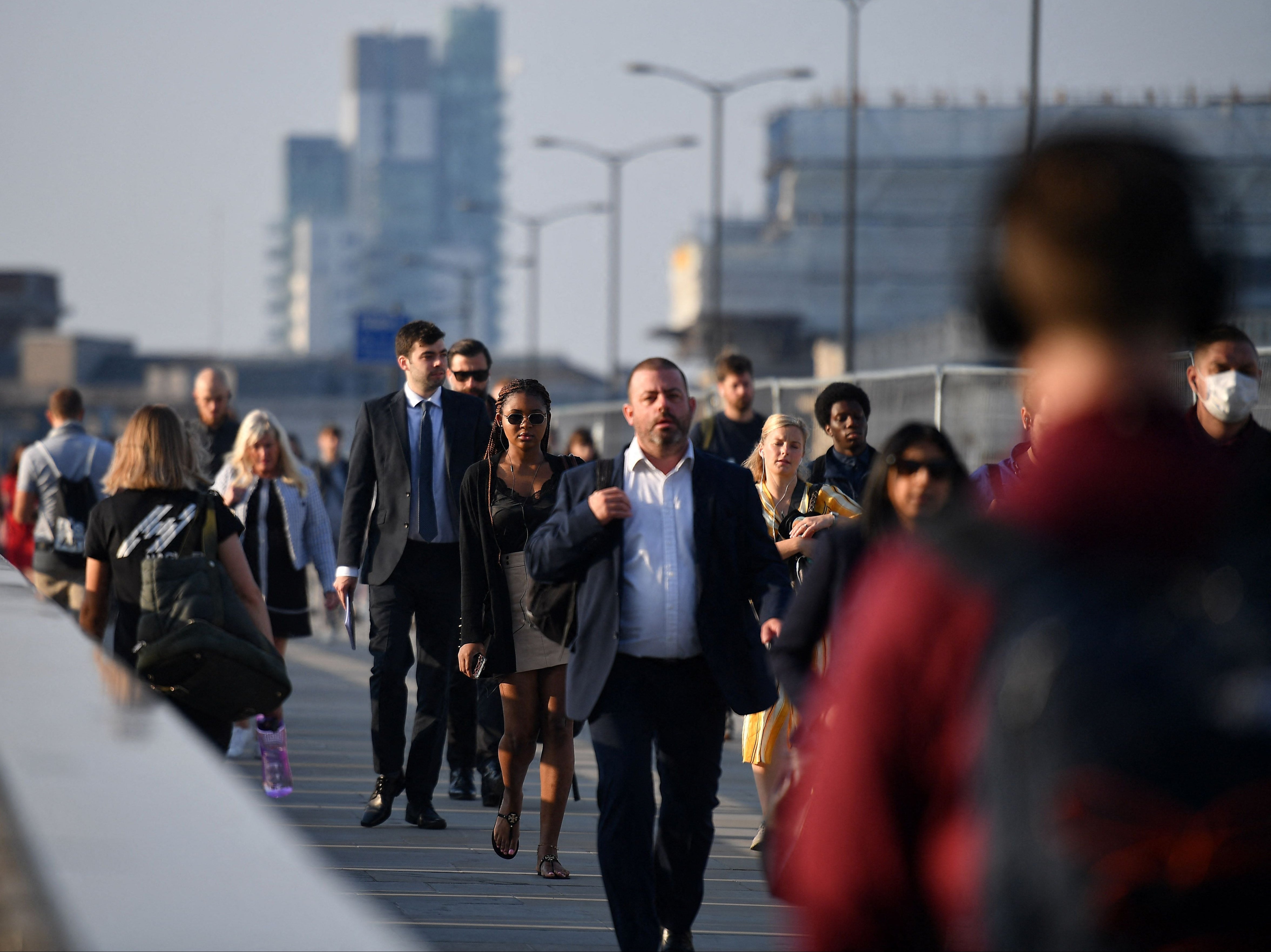Job vacancies hit 20-year high as market rebounds after Covid
Shortage of home-grown and overseas workers could stunt recovery, warn experts, even as employment numbers improve

Your support helps us to tell the story
From reproductive rights to climate change to Big Tech, The Independent is on the ground when the story is developing. Whether it's investigating the financials of Elon Musk's pro-Trump PAC or producing our latest documentary, 'The A Word', which shines a light on the American women fighting for reproductive rights, we know how important it is to parse out the facts from the messaging.
At such a critical moment in US history, we need reporters on the ground. Your donation allows us to keep sending journalists to speak to both sides of the story.
The Independent is trusted by Americans across the entire political spectrum. And unlike many other quality news outlets, we choose not to lock Americans out of our reporting and analysis with paywalls. We believe quality journalism should be available to everyone, paid for by those who can afford it.
Your support makes all the difference.Job vacancies in the UK have hit their highest level since records began 20 years ago.
There were some 1.102 million roles open between July and September, the Office for National Statistics said on Tuesday, an increase of 318,000 from the pre-coronavirus period of January to March 2020.
It was also the second month running in which the three-month average topped 1 million, as the jobs market continued its recovery. The rate of unemployment fell to 4.5 per cent between June and August, down from 4.6 per cent in the quarter to July, the ONS added.
In another sign of the buoyant recruitment market, the ONS said the biggest rise in vacancies was seen in the administration and support sector – namely temporary employment agencies – with an increase of 165,000.
The number of workers being hired has also rocketed, figures showed, with 207,000 added to company payrolls between August and September bringing the total to a record 29.2 million.
Darren Morgan, director of economic statistics at the ONS, said: “The jobs market has continued to recover from the effects of the coronavirus, with the number of employees on payroll in September now well exceeding pre-pandemic levels.”
However, some sectors are suffering a recruitment crisis. Nearly one-third of hospitality businesses told the ONS they were finding it more difficult than normal to fill vacancies.
Yael Selfin, chief economist at KPMG UK, warned staff shortages could slow the economic rebound. She said: “The recovery is testing the capacity of the economy to adjust to a new post-pandemic environment, a task made more difficult by the reduced availability of overseas workers.
“Acute skill shortages have pushed vacancies to record levels for a second month in a row in September, as employers struggled to find skilled staff.”
Matthew Percival, of the CBI, said many firms had struggled to hire enough staff in the autumn, which was reflected in the ONS data.
While Rishi Sunak, the chancellor, called the figures “encouraging”, Tony Wilson of the Institute for Employment Studies warned there could be almost a million fewer people in the labour market than before the pandemic.
Mr Wilson told the Financial Times: “These shortages are holding back our economic recovery and won’t fix themselves by just exhorting firms to pay more.”
Additional reporting by PA Media
Join our commenting forum
Join thought-provoking conversations, follow other Independent readers and see their replies
Comments